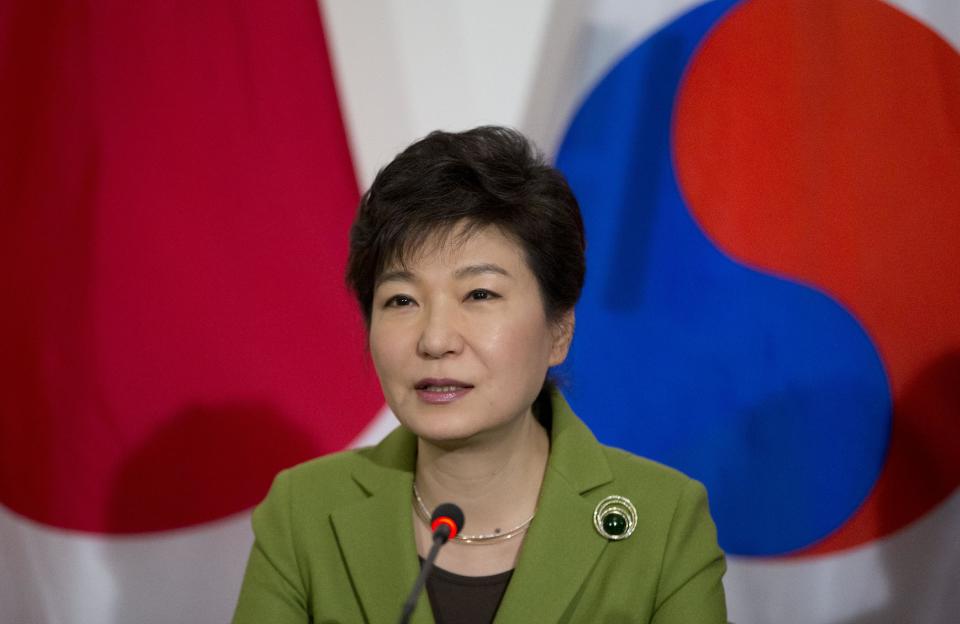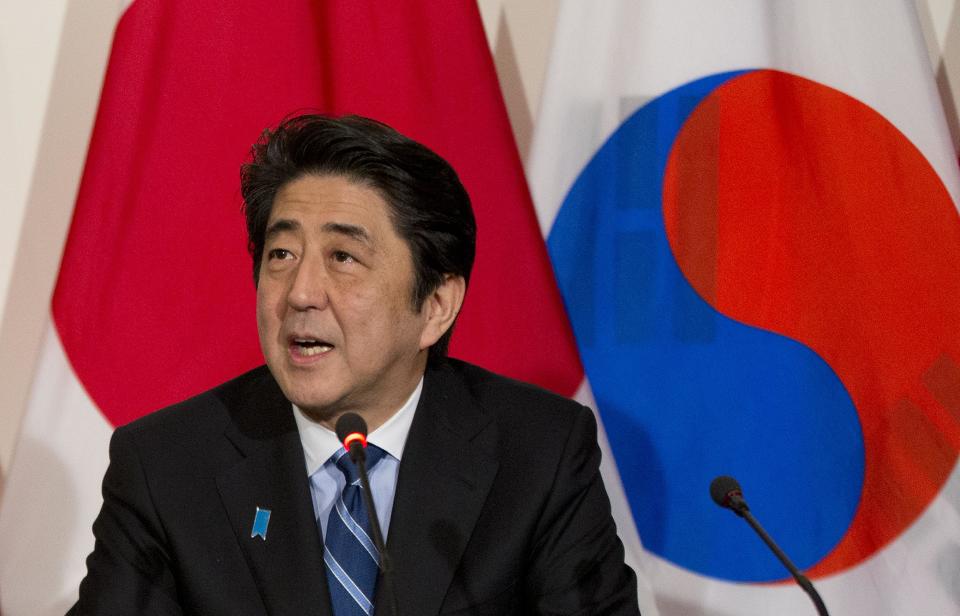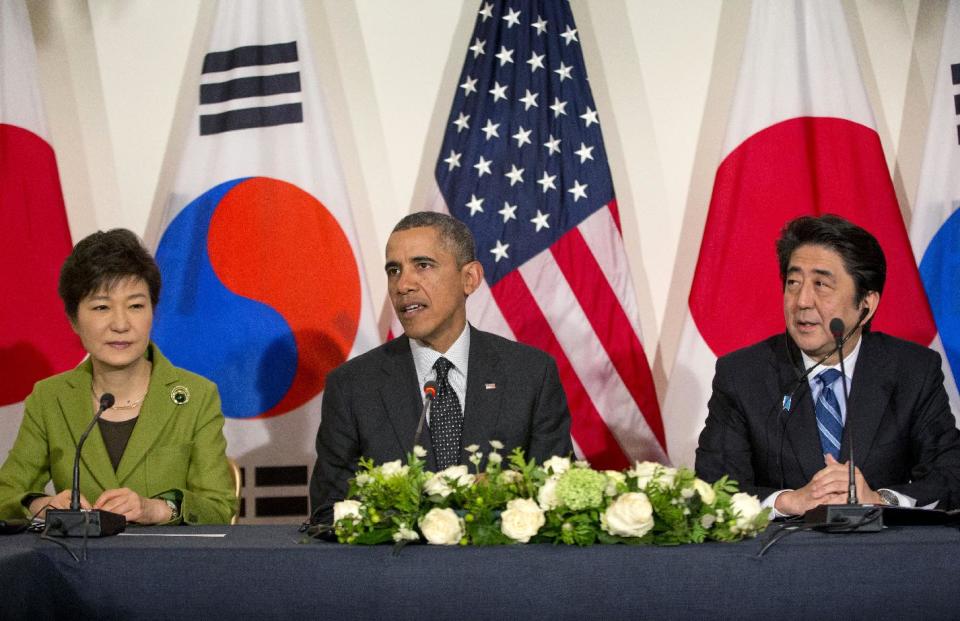Obama brings leaders of Japan, SKorea together
THE HAGUE, Netherlands (AP) — President Barack Obama scored a small but significant diplomatic coup Tuesday by bringing together the leaders of key Asian allies Japan and South Korea for their first face-to-face meeting since they both took office more than a year ago.
Most Japanese leaders meet their South Korean counterparts within the first year in office. The failure of Japanese Prime Minister Shinzo Abe and South Korean President Park Geun-hye to sit down with each other within that period of time has been a source of deep concern for the United States.
Knowing that all three would be in the Netherlands to attend the third installment of Obama's nuclear security summit, the White House arranged a meeting among the leaders. Obama played middle man, with Park seated to his right and Abe to his left.
Addressing the media before the meeting, the leaders focused on the security threat posed by North Korea. But it is also no secret that diplomatic ties between Asia's two wealthiest democracies have been severely strained due to South Korea's lingering resentment over Japanese misconduct during World War II. That includes Japan's wartime system in which thousands of Korean and other women were forced to provide sex in military brothels, and suspicions of Abe's nationalist and revisionist tendencies.
Tensions between the countries worsened after Abe in December visited a major shrine honoring Japanese war dead.
Obama said the leaders were united by "our shared concern about North Korea and its nuclear weapons program."
"Close coordination between our three countries has succeeded in changing the game with North Korea, and our trilateral cooperation has sent a strong signal to Pyongyang that its provocations and threats will be met with a unified response and that the U.S. commitment to the security of both Japan and the Republic of Korea is unwavering, and that a nuclear North Korea is unacceptable," Obama said.
On the same day, South Korea and the U.S. said North Korea had test-fired two medium-range ballistic missiles for the first time since 2009. In a statement following the missile launch, State Department spokeswoman Marie Harf said the U.S. was urging North Korea to exercise restraint and refrain from further threatening actions.
"We are closely coordinating with our allies and partners, including in the U.N. Security Council, to take the appropriate measures in response to this latest provocation and to address the threat to global security posed by the DPRK's nuclear and ballistic missile programs," she said.
After the meeting of Obama and the two Asian leaders, a senior member of Obama's administration said that the issue of strained relations between Japan and South Korea did not come up during their meeting. The focus was on North Korea, and some regional security issues also were discussed, said the official, who spoke on the condition of anonymity to describe the president's private meeting.
Since pulling out of six-party talks aimed at ending its nuclear program in exchange for financial assistance in 2009, North Korea has conducted a long-range rocket test, its second nuclear test and, most recently, multiple launches of short-range rockets.
A North Korean diplomat Monday criticized the U.S. for conducting military exercises near its borders and accused the U.S. of undermining prospects for undermining the prospect of improved relations with South Korea.
Park said North Korea should change its behavior.
"Should North Korea embark on a path toward denuclearization on the basis of sincerity, then there will be a way forward to address the difficulties confronting the North Korean people," she said.
Abe told reporters earlier Tuesday that he was looking to a "future-oriented relationship" with South Korea. At the appearance with Obama, the Japanese leader said he was "so very happy to be able to see" Park.
Abe noted that the three countries share "basic values and strategic interests" and should cooperate on security issues as well, particularly relating to North Korea.
Obama said the meeting gave him an opportunity to lay the groundwork for his April visit to Japan and South Korea.
___
Associated Press reporter Toby Sterling contributed to this report.




